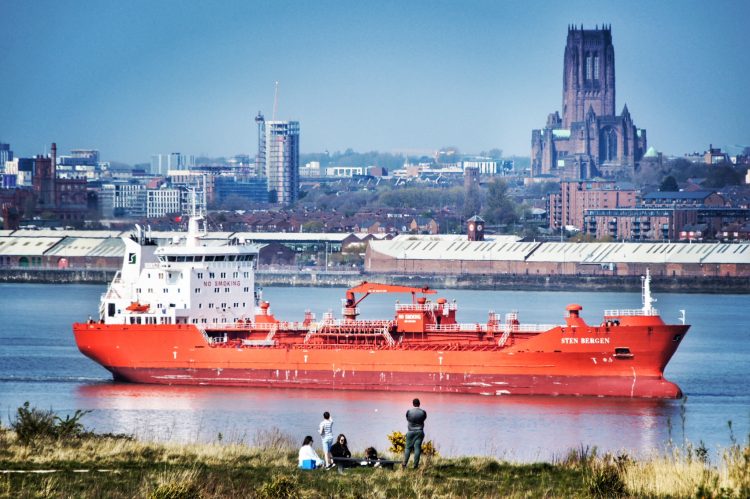Innovation and skills critical to growth of maritime sector
Leaders of the £116bn UK maritime industry met in Liverpool for the fifth annual Maritime Exchange conference organised by Mersey Maritime and agreed investing in innovation and skills was critical to future growth. Tony McDonough reports

Technological innovation driven by a skilled workforce that is “fit for the future” is critical to the future growth of the UK’s £116bn maritime sector.
That was the overall message delivered by speakers at the fifth annual Mersey Maritime Exchange conference in Liverpool. Organised by Mersey Maritime, the event brought together industry and Government leaders in the industry.
Similar to previous events, the Exchange used the Government’s Maritime 2050 strategy as the focus for the conversations. This sets out the future of the maritime sector over the next 30 years. Top of the agenda was innovation, decarbonisation, skills and digital technology.
Addressing the audience at the Tung Auditorium at the University of Liverpool, Government transport minister Baroness Vere said it was essential the government and the industry worked together to create a “safer, cleaner and greener sector”.
Speaking about the conference and its importance, she said: “This is bringing together the whole breadth of the maritime sector. There is a big focus on the delivery of the Maritime 2050 strategy.
“When we visit Liverpool we hear from local businesses. Technology and innovation and people and skills are topics that are constantly raised.
“Liverpool has an incredibly rich maritime history. Mersey Maritime and its partners are building on that with the creation of the Maritime Knowledge Hub.”
Baroness Vere spoke of the success of UK SHORE (UK Shipping Office for Reducing Emissions). It has been tasked with allocating £206m to fund projects designed to help slash emissions across the maritime sector.
“This is the biggest ever investment into maritime research and development by the Government and industry,” she added. “Some of the beneficiaries of that are based here in Merseyside.
“There has also been £204m made available for maritime skills… we need to have a workforce that is fit for the future and is leading the change with a commitment to making that workforce as diverse as possible.”
She also referred to the first meeting of the Maritime Council which is a forum to drive collaboration between Government and the maritime sector to meet future challenges and opportunities.
Mersey Maritime Chief Executive Chris Shirling-Rooke, who is soon to depart to take up the role of CEO at Maritime UK, said the Maritime Council was already proving to be “incredibly energising”.
He added: “Maritime 2050 is incredibly current. This was the first industry-Government paper that has been published since World War II.”
Professor Tim Jones, who this year took up the role of Vice-Chancellor of the University of Liverpool, said he was determined to forge closer links with the Liverpool city region maritime sector which is now worth £5bn a year and provides tens of thousands of jobs.

“Liverpool is a port city and I think the university can do a lot more… We carry out fantastic research and innovation here. The drive towards digitalisation is something that we have a particular strength in.”
Holly Norman, Head of Marketing for Ancoris, the Maritime Exchange headline sponsors, also addressed delegates at the event. Ancoris is a Google Cloud services provider.
She talked about the emergence and growth of artificial intelligence (AI) and how many businesses and individuals were confused about what it means for them.
“We want to engage with people on AI. The point is that we are very early on in the AI journey. If you don’t know where to go or what to do, then you are not alone. We are at a pivotal point.
“Different industries will be disrupted at different times and will move at a different pace. It is up to us how we want to adapt to the transformation… business and technology have to be in the same room.”
Lasting for a full day, the day was split into two parts across four panel sessions. In the morning the focus was on technology and innovation, exploring decarbonisation and digitisation and in the afternoon the focus shifted to people and skills, including future skills and maritime careers.”
As well as headline sponsor Ancoris other sponsors were Bibby Marine, Liverpool John Moores University, Nautilus International and the Royal Navy.
In his closing remarks to the Mersey Maritime Exchange, Chris Shirling-Rooke, said the depth and breadth of the discussions had illustrated “just how complex our industry is”, adding: “It is too deep and too complex to get everything down in a single day.
“Our industry puts £116bn into the UK economy every year and provides 1.1m jobs. And we forget how wages in our industry are higher than the national average. We offer the ultimate hi-tech jobs and they will become more important as we move forward.
“It is about our supply chains, about how we get our food… we are an island nation and our sector is the only game in town.”
READ MORE: Ruth Wood takes helm at Mersey Maritime
Chris explained how vital the maritime sector is to Britain’s coastal communities, which are sometimes in the most deprived areas of the country. He said: “We can really have an impact on those communities.
“Whether it is decarbonisation, or digitalisation or future skills… we need to keep pushing on these to drive our industry forward.”
Chris identified the ‘three Cs’ – challenging, clarity and collaboration. It was vital the industry kept on challenging itself, he said, adding that thanks to Maritime 2050 and events such as the Exchange, the sector now had a clear sight of the direction in which it needed to go.
Collaboration was important, he concluded, because “no matter what the size of your business we all have a role to play in making a difference”.

